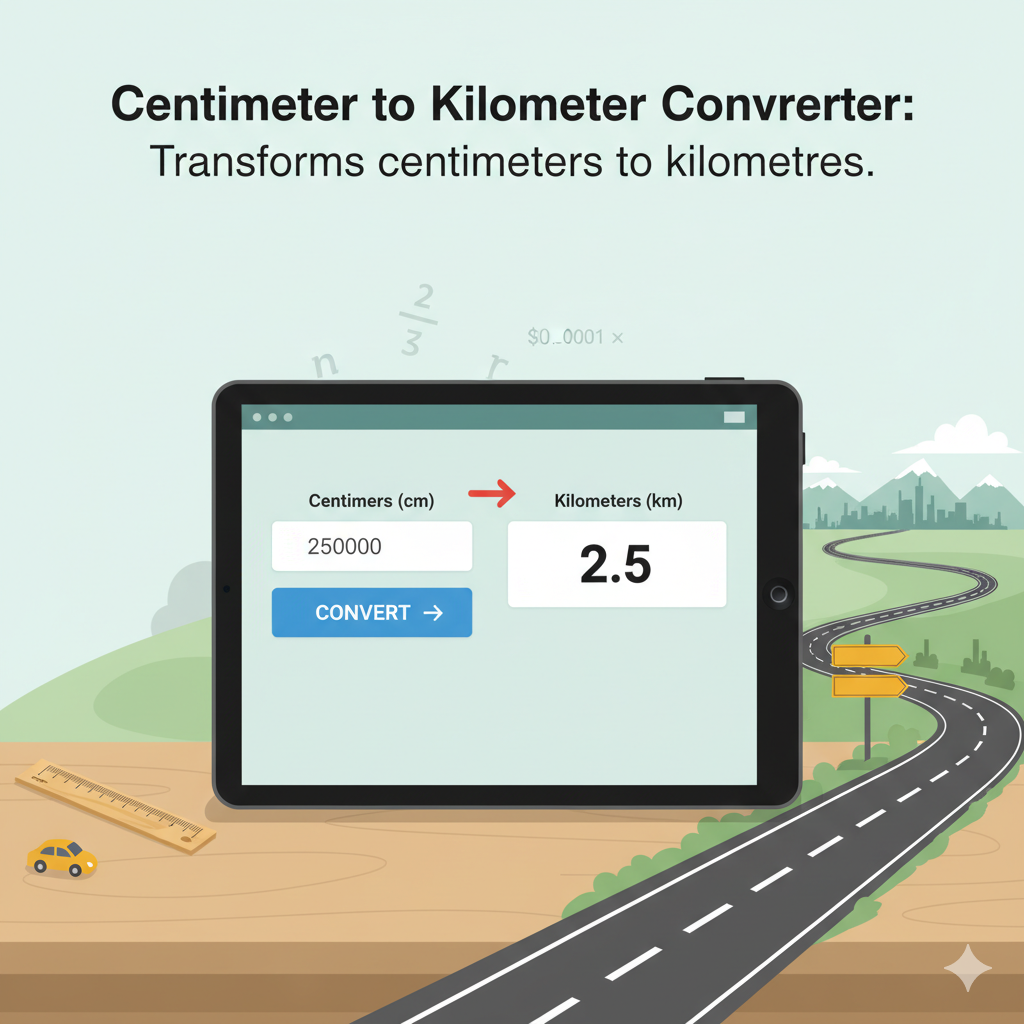
October 11, 2025 | blog
Centimeter to Kilometer Converter: Your Guide to Effortless Distance Conversion
Navigating the world of measurements requires shifting between units of varying scales. While a centimeter is perfect for measuring the width of a book, a kilometer is suited for the distance of a road trip. The vast difference between these two metric units can make manual conversion a challenge. This is where a Centimeter to Kilometer Converter comes in—a simple yet powerful tool designed to transform centimeters (cm) into kilometers (km) instantly and accurately.
This article explores the relationship between these units, the formula for conversion, and the practical utility of using a digital converter.
Understanding the Units: Centimeter vs. Kilometer
Both centimeters and kilometers are units of length in the metric system, a decimal-based system used worldwide.
Centimeter (cm): A centimeter is one-hundredth of a meter (1/100 m). It's used for small-scale measurements where precision is needed, such as in crafting, design, and everyday objects.
Kilometer (km): A kilometer is one thousand meters (1000 m). It is the standard unit for measuring large geographical distances, like the length of a river or the distance between two cities.
The core relationship to remember is that there are 100,000 centimeters in a single kilometer.
The Conversion Formula: How to Manually Convert cm to km
Understanding the math behind the conversion is straightforward. Since there are 100,000 centimeters in a kilometer, converting from centimeters to kilometers requires you to find out how many groups of 100,000 are in your given number of centimeters. This is achieved through division.
The formula is:
Kilometers=100,000Centimeters
Alternatively, you can express this as multiplication:
Kilometers=Centimeters×0.00001
Step-by-Step Example:
Let's say you want to convert 250,000 centimeters into kilometers.
Start with your value: 250,000 cm
Apply the formula: Kilometers=100,000250,000
Calculate the result: Kilometers=2.5 km
So, 250,000 centimeters is equal to 2.5 kilometers.
Why Use a Centimeter to Kilometer Converter Tool?
While manual calculation is possible, a dedicated converter tool offers several advantages:
Speed: Get instant results without having to perform any calculations.
Accuracy: Eliminates the risk of human error, especially when dealing with long decimals or large numbers.
Convenience: Easily accessible on any device, making it perfect for quick checks at school, at work, or on the go.
Simplicity: The interface is typically just a single input field—enter the centimeters, and the tool provides the kilometer equivalent.
Practical Applications of cm to km Conversion
Converting between centimeters and kilometers is crucial in various fields:
Cartography and Map Making: Maps are scaled-down representations of the real world. A distance that measures a few centimeters on a map (e.g., 5 cm) could represent many kilometers in reality. Cartographers use this conversion to establish a map's scale (e.g., 1 cm = 1 km, which is a 1:100,000 scale).
Large-Scale Engineering and Construction: In projects like building highways, tunnels, or pipelines, initial designs and blueprints might use centimeters for precision, but the overall project scope is measured in kilometers.
Scientific Research: Fields like geology, environmental science, and astronomy often require converting model measurements to real-world scales.
Education: It is a fundamental concept for students learning the metric system and helps them grasp the relationship between different orders of magnitude.
Recent Posts
No blogs Found !


 Log In
Log In

